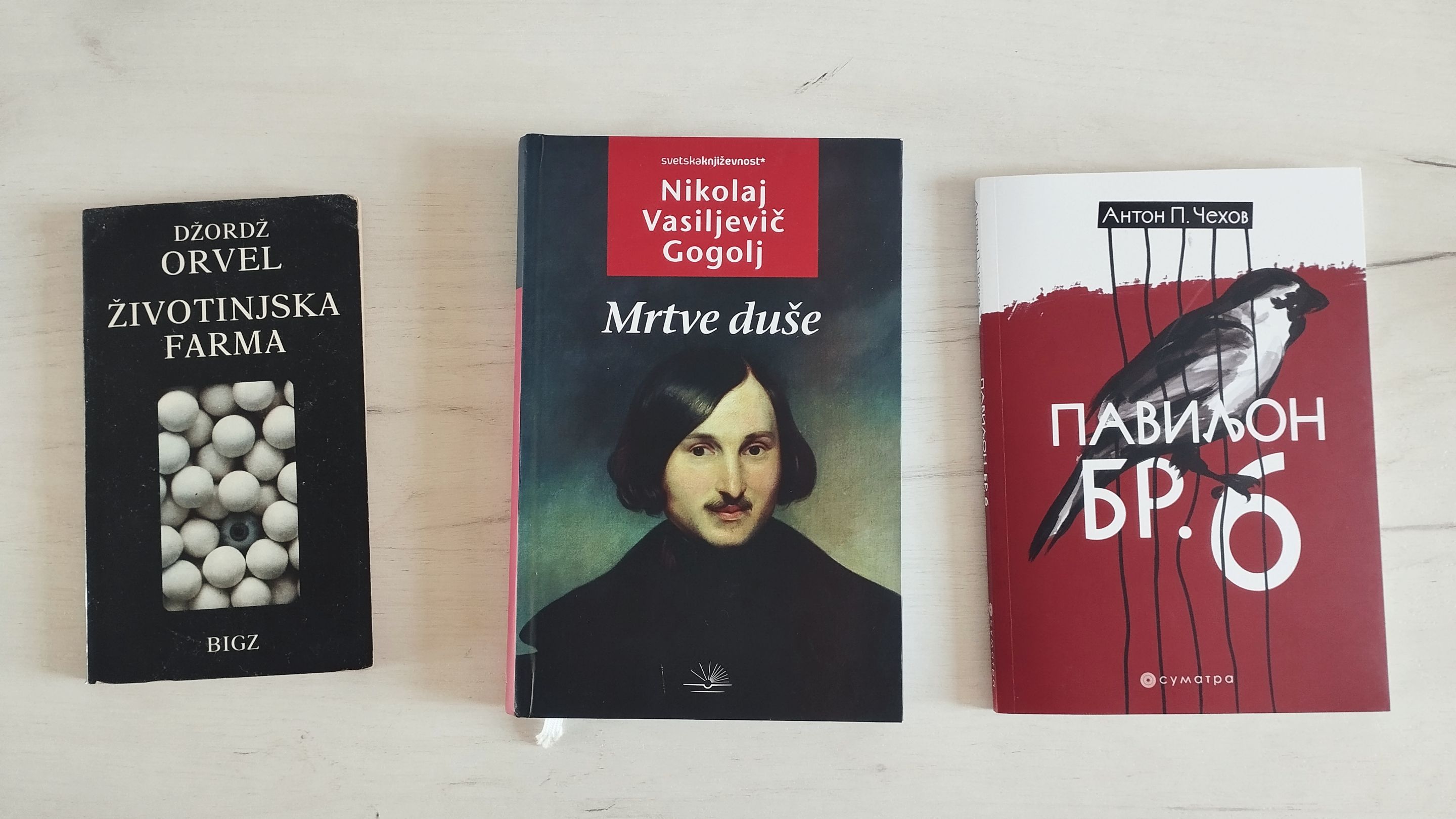It's good to talk to you again, literary fans. I've been away from Hive due to a busy schedule, but I've tried to maintain a regular reading routine and now have plenty of great books to discuss and recommend.
I'm a sucker for classic literature that has stood the test of time and remains just as relevant and engaging today as it was when first published. Today, I want to share four short novels that use satire or absurdity to hold up a mirror to a society gone mad. In Dead Souls by Nikolai Gogol, Animal Farm by George Orwell, Ward No. 6 by Anton Chekhov, and The Stranger by Albert Camus, the authors dissect human flaws, corrupted systems, and the fragile line between reason and madness. Though distinct in context and style, these classics challenge truths about the world through irony, humor, and existential despair.

Dead Souls – Nikolai Gogol
A satirical novel about an oddball entangled in shady dealings, and a whole swarm of strange, hollow characters from the Russian provinces. Together, they form a bleak portrait of poverty and the meaningless routines of a decaying society. A master of absurdity and subtle wit, Gogol creates grotesque characters we can easily recognize among ourselves.
"“It is known that in the world there are many faces over the making of which nature did not take long trouble, did not use fine instruments—files, drills, and the like—but simply hacked away with the axe: gave one stroke—and a nose came out, gave another—and lips came out, bored out the eyes with a big gimlet, and, without polishing or smoothing, dropped it into the world, saying: ‘It will do!’”"
The book, however, remains unfinished. Originally conceived as a three-part saga—depicting hell, redemption, and paradise—it ended prematurely, in fragments of the second part, just as a glimpse of a better world began to appear. The rest was burned by the author himself shortly before his death.
Despite this, Dead Souls stands like a majestic ruin—interrupted yet precious. Perhaps it symbolizes the eternal human longing for inner transformation—one that, sadly, often remains unfulfilled.
Rating: 4.5/5
Animal Farm – George Orwell
This book has never felt more authentic than it does today. Whether visionary or insider in nature, it presents a one-to-one reflection of the world we live in—an allegory that reveals how fear, propaganda, and ignorance are used as tools to establish the rule of absurdity by a handful of arrogant, power-hungry pigs.
“"The creatures outside looked from pig to man, and from man to pig, and from pig to man again; but already it was impossible to say which was which."
Rating: 4.25/5
Ward No. 6 – Anton Chekhov
A darkly humorous exploration of the absurdity of human nature and the thin line between reason and madness. The story follows a doctor in a horrifyingly neglected mental institution who spends his time pondering life instead of taking action—only to have his stoic convictions mercilessly tested by the author. Chekhov’s humor is almost invisible, yet unmistakably present, offering a surprising sense of warmth. It transforms this bleak tale into a black comedy that questions the irony of life and what it truly means to be “normal” in an utterly insane world.
“Oh, why is man not immortal? he thought. Why are there brain centers and convolutions, why sight, speech, feeling, genius, if it is all destined to turn into dust and, in the end, to cool along with the Earth’s crust, and then for millions of years to spin with the Earth around the sun, without any meaning or purpose?”
Rating: 4.25/5
The Stranger – Albert Camus
Camus’s The Stranger poses the ultimate question of absurd existence. Meursault, the emotionally detached protagonist, drifts through life devoid of passion or moral certainty. To some, he symbolizes freedom from illusion; to others, he represents the emptiness at the heart of modern man. Camus invites us to ask: Are those who cling to invented systems — morality, religion, social norms — merely faking meaning in an indifferent universe?
“So close to death, Maman must have felt free then and ready to live it all again. Nobody, nobody had the right to cry over her. And I felt ready to live it all again too. As if that blind rage had washed me clean, rid me of hope; for the first time, in that night alive with signs and stars, I opened myself to the gentle indifference of the world.”
Rating: 4/5
These works, each in its distinct voice, keep alive the questions of moral responsibility and the search for meaning. They remind us to pause and reflect on our own actions—something more vital than ever in a world where being in a constant hurry is a normal state of existence.